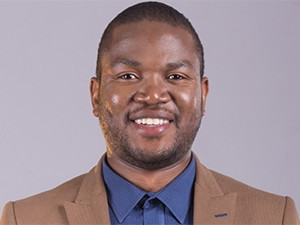
A research project into the development of 21st century skills in rural learners drove Bongani Mabaso, a business student at UCT Graduate School of Business (GSB), to establish The Connected Learning Mathematics Club in the Limpopo village of Gija-Mhandzeni.
The online mathematics club uses Facebook to encourage connected learning. "The design of the club is based on connected learning theory, which argues that learning occurs best when it is interest-driven, peer-supported and socially embedded," explains Mabaso. "In other words, when students can take it into their peer groups, and when they are able to get support and assistance from teachers, parents and mentors when they need it. This allows learners to feel connected both to each other and to their community. Facebook was an ideal platform as I did not have to spend hours on a new design and some learners and teachers were already familiar with it, so adoption was smooth."
A typical learning cycle would begin with a teacher giving a lesson based on the national curriculum. The lesson would progress as usual, but with the understanding that there would be an online component later on. At the end of the day, the teacher would post exercises or assignments onto the Facebook platform, where a private connected learning group was created, so that students could collaborate and answer the questions. The teacher would then examine the progress on the platform, and also participate by answering questions and making announcements.
Some of the biggest challenges experienced, according to Mabaso, were poor Internet connectivity and a lack of devices. "But this didn't stop nearly 30 students at Madonsi High from using an online platform to sharpen their maths skills. The students managed to source mobile devices such as smartphones, tablets, and laptops from the community itself. Learners then had to bring their own devices that could access the Internet, or if they did not have one, partner with a peer that did."
Mabaso says the high price of data, despite the recent reductions, is a problem. "It is true, however, that many South Africans cannot afford the data prices as they are right now. This remains a challenge for any technology-supported educational intervention in this country. For this pilot, I had to set up a mobile WiFi router in order to allow learners to connect. I challenge the big mobile service providers (like MTN, Vodacom, Cell-C, Telkom) to zero-rate the connected learning app (once it have finished developing it). It's an investment in education that will be key to even their sustainability in the future by allowing new latent to come through."
Despite the challenges, Mabaso saw an increase in membership to the club.
Previously the school had a problem with maths assignments either being submitted late or not at all. By participating in the club, this trend was reversed. "Learners also showed signs of developing skills such as communication, collaboration, critical thinking and problem solving, technological literacy, and information literacy, among others. These are all skills that are necessary for life and career success in the 21st century," says Mabaso.
This kind of thinking - and action - says Sarah-Anne Arnold, manager of the MTN Solution Space, is exactly what the Solution Space, an innovation and entrepreneurship hub at the GSB, seeks to support and amplify. "Because complex challenges demand collaboration and partnership, we work with a mix of business, civil society, academia and government to pilot divergent action-learning experiments and co-create distinctively African solutions to African challenges, which are always influenced by poor infrastructure and low skills base," she says. "These are the realities that our continent faces and our aim is to provide a platform where start-ups and innovators like Mabaso can try out new ideas to create value - even when the problems seem insurmountable."
Thus far the MTN Solution Space sponsored the lab that was used to classes and presentations at the GSB. "We also did some design work there. So it was just a nice space to learn and be able to interact with other learners and lectures within the campus. They also brought guest speakers from industry," confirmed Mabaso.
Mabaso emphasises that despite most research treating rural contexts as a place of want and need, "you look at what happened with the maths club, it just goes to show that there are rural assets that can be leveraged for learning. Combine this with the fact that the solution was completely teacher-led and run, and it starts to form a basis for a contextual way to improve rural learning".
Mabaso is designing a new mobile app and a 'lite' Web version of the connected learning platform and is keen to roll out the concept to other schools around the country. He has been invited to present his research findings to the Department of Education in Limpopo in June 2017 and looking to expand the same platform to Gauteng and North-West.
Share